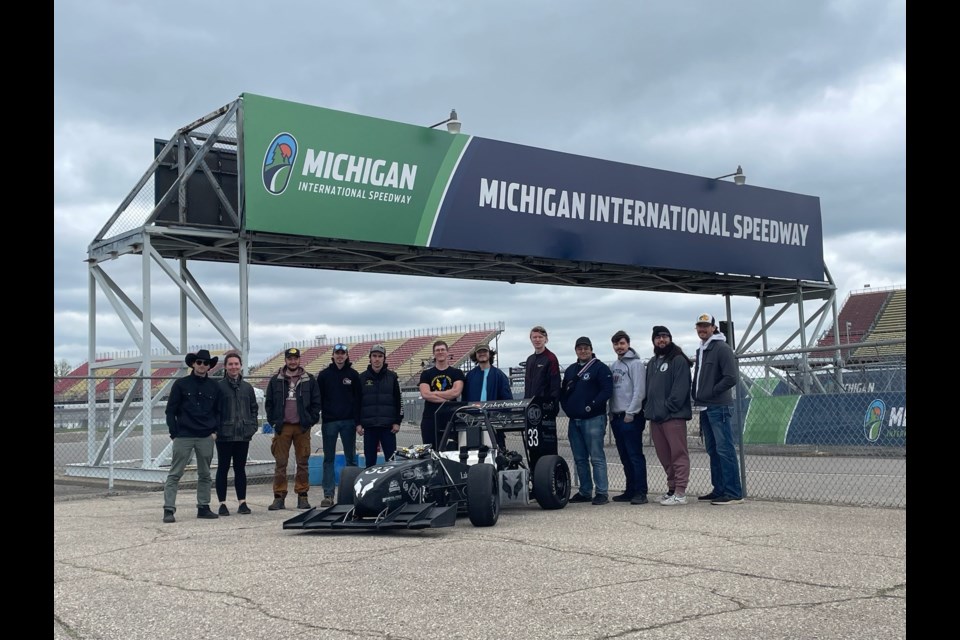THUNDER BAY – A group of Lakehead University students represented the city and school at the Formula Society of Automotive Engineers (SAE) Collegiate Design Series (CDS) competition.
The event was held in Michigan from May 14 to 17. The team, consisting of 12 core members, competed under the name Thunder Wolf Racing with car No. #033.
They were among 109 teams from around the world, including universities from Canada, the U.S, Brazil, Mexico, Spain, and Venezuela.
Organized by SAE International, the competition challenges undergraduate and graduate engineering students to design, build, and compete with a formula-style race car. The CDS program helps students prepare for careers in the mobility sector by offering hands-on engineering experiences and opportunities to collaborate with industry professionals.
Teams are evaluated across both static and dynamic events. These events are scored in several categories, including:
- Presentation Score – Evaluating the team's ability to present their design as a viable business proposal.
- Design Score – Assessing engineering approach, innovation, and design process.
- Cost Score – Measuring budgeting and documentation accuracy.
- Penalty Cost Score – Deductions for violations or safety concerns.
- Acceleration, Skid Pad, Autocross, Endurance, and Efficiency Scores – All assessing various performance and durability metrics.
Thunder Wolf Racing scored:
- 45.94 points in the Business Presentation,
- 47.00 in Cost Analysis,
- 40.00 in Design Evaluation.
Unfortunately, the team was unable to participate in the dynamic events due to a technical setback.
“What happened was, we passed mechanical technical inspection and tilt test pretty easily," said Jared Rooney, a mechanical engineering student at Lakehead University. "But when we got to the sound test, we had some issues with our muffler. Our sound level was about one decibel over the limit, even after adjusting the exhaust system. We just couldn’t get that extra decibel down, and that meant we weren’t allowed to compete in the dynamic events. That was pretty unfortunate. We really did try our best and were grinding until the last second.”
Rooney added that environmental conditions may have played a role.
“We cleared sound back here at home by quite a bit. Then we went over there and I don’t know if it was the heat and humidity, or just the type of microphone they used, but it was well above what we were reading," he said.
The team began work on their car in September. Most design work was completed by December, with parts ordered soon after. Assembly began between late February and early March, and the final version of the vehicle was road-ready by late April.
Rooney estimated the total project cost at around $25,000.
“It was pretty much just whatever we could fundraise. A lot of us ended up spending our own money as well, just because there were parts we needed right away. Getting approval through faculty took time, so we had to cover some things ourselves.”
The team was supported by several sponsors, with EKT 90 covering the cost of the chassis, estimated at over $4,000. Other major contributors included Nordmin Engineering, Wanson Lumber, Confederation College and additional support from other local Thunder Bay businesses.
